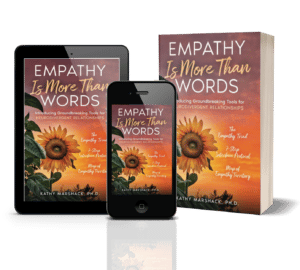As more adults are being diagnosed with Asperger Syndrome (AS), mental health professionals are learning that one of the most handicapping problems faced by these adults occurs in their interpersonal relationships. The primary reason that adults with Asperger Syndrome have poor interpersonal relationships is that they have underdeveloped social skills, the major one being empathy. The way the spouse of the Asperger Syndrome partner often copes with this lack of empathy is to become codependent.
Codependence is defined as a state of mind where you put your needs and dreams aside in order to help the other person have a life. Kindness is doing these kinds of things sometimes and having a balance of give and take in a relationship. In a codependent relationship, no matter how much you give the other person does not return the favor. Yet you keep on giving and getting more fatigued, frustrated and resentful.
Codependence leads to micromanaging the AS members of the family. Because the AS members are doing everything they can to function in other areas of life, such as their job, everything else gets dropped. The codependent person picks up what is dropped as well as managing his or her own life.
1. The codependent arranges all of the social life.
2. Or the codependent is fully responsible for childcare and home management.
3. Or the codependent covers for his spouses social faux pas.
4. Or the codependent lays out her husband’s clothes because he always mismatches things.
5. Or the codependent pays for extra childcare or dry cleaning because his wife is so overloaded.
6. Or the codependent works overtime or a second job because his spouse cannot earn enough money or keep a steady job.
7. Or the codependent takes a job for health benefits because her spouse is self-employed in lieu of unsteady employment.
8. Or the codependent stays up late to type the teenager’s paper so that the kid won’t turn in homework late again.
The codependent experiences burnout eventually. To get beyond codependency, you need to explore self-care. Put your needs first and see to them first. Since your AS spouse or child loves you but has no idea how you tick, make your beliefs and needs known in concrete ways.
Educate yourself as much as possible about the relationship issues of AS so that you can spot the symptoms of dysfunction early and correct the problems. Use books, tapes, and psychotherapy. You can also use a support group to replenish your energy because this is a difficult task – if you live in Portland/Vancouver check out the group Asperger Syndrome: Partners & Family of Adults with ASD.
To learn more about AS and codependency in relationships visit my Asperger & Marriage page or take a look at my book – Life with a Partner or Spouse with Asperger Syndrome: Going over the Edge? Practical Steps to Saving You and Your Relationship.




Are you AS? If you aren’t, you should not be speaking for us. Both my husband and I have just found out this year (2023) that we both have Asperger’s, and we’re 60. We both have deep empathy and cannot establish deep enough relationships with NTs because they lack empathy.
Hello Deb. While I do understand your concern and I may not be able to change your opinion, I believe there is another way to look at this problem.
No, I am not ASD. I am a psychologist with years of experience living with family on the Spectrum, and working as a clinician. As you might be aware I have written several books, and blogs, recorded online courses, and have three online community forums. — all in service to NeuroDivergent couples and families.
But these credentials are not the only reason I disagree with your opinion. In order to foster dialog between NeuroTypicals and the NeuroDiverse, we all need to discuss together the problems that erupt in NeuroDivergent relationships. To foster the idea that only those on the Spectrum can speak about autism discourages this discussion.
Another misstep is to assume that empathy is the same as compassion or sensitivity. I believe you are misusing the term when you say, “We both have deep empathy and cannot establish deep enough relationships with NTs because they lack empathy.” If you had “deep empathy” you would indeed understand where NTs are coming from and why they are so confounded by ASD conduct. Perhaps you mean you have deep sensitivity.
Empathy is much more than sensitivity or compassion or kindness. Empathy is the ability to recognize the inner world of the other person, while at the same time holding constant your inner view, while at the same time being able to communicate to the other person that you get them. And the ability to get the other person means that as soon as you notice the communication is rough or disconnected, you reach out again to affirm the other person and bring the conversation back to a mutually rewarding place. When you say you have “deep empathy. . .” you didn’t write “we have deep empathy for each other,” or “we have deep empathy for others.” I interpret your comment to mean that you are deeply sensitive. . . not empathic (which by the way is a symptom of ASD).
Back to your original premise that only the Autistic should speak for the Autistic ignores that Autists are in relationships with others both NeuroTypical and NeuroDiverse. Who is to speak about those relationships? Who is to help when the worlds of NT and ASD collide? Who is to help create a bridge between the Transactional (e.eg.only Autists should speak for Autists) and the Interactional (e.g. seeking to affirm and connect both people in a relationship)?
I think you are dangerously mistaken to take the position that the best way to solve the conflicts in NeuroDivergent relationships is to keep these two worlds separate and distinct instead of to look for our common humanity. Instead of building an impenetrable wall of “You don’t understand me” how about creating a peace garden where all are welcome to come and learn about each other?
Very well said. I have had a unique experience of myself being a female with Asperger’s and then had lived 10 years with a male Asperger’s partner. Neither of us have been diagnosed which I have determined is almost next to impossible especially when he is in denial and just wants to believe he just a hermit and he didn’t create problems. To him the problem was that I always made there be problems (by things he couldn’t see as being a problem) so I
had to then be the problem. Talk about crazy makers and lack of empathy and not feeling validated. How can you have empathy if he lacked seeing someone else’s perspective? Having Asperger’s it’s hard to show what you feel and some with Alexithymia hard to show and even know what you feel. We find it hard express empathy by words and actions. I am able to more than my now ex boyfriend. He had next to zero ability to say or do the things that make up empathy. I was emotionally and socially deprived for so many years that I developed Cassandra Affective Deprivation Disorder. My anxiety, depression and isolation got worse. I developed PTSD like symptoms. The worse part is that I didn’t see any empathy from him. So one of the things the lack of empathy that contributed to my CADD was made worse by not receiving empathy from him to help my CADD? It was a double edged sword. It messed me up something good !